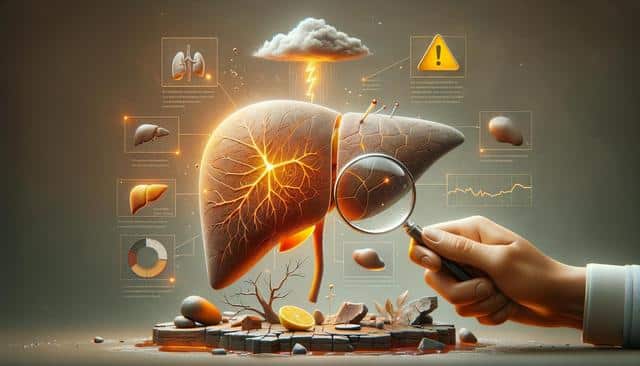
How to Spot Early Warning Signs of Liver Damage
Understanding the Role of the Liver and Why It Matters
The liver plays a crucial role in maintaining overall health. It is responsible for detoxifying the blood, producing bile for digestion, storing essential nutrients, and supporting immune function. Because of its central role, any damage to the liver can have wide-ranging effects on the body. Many people are unaware of liver damage until it has progressed significantly, which is why early recognition of symptoms is essential. The liver has a remarkable ability to regenerate, but this capacity diminishes over time if damage continues. Understanding how the liver works can help individuals appreciate the importance of regular health monitoring and lifestyle choices that support liver wellness.
While the liver is resilient, it can be affected by various factors, including poor diet, excessive alcohol consumption, viral infections, and certain medications. Early intervention can prevent further complications, such as cirrhosis or liver failure. Monitoring liver health through routine check-ups and being aware of subtle changes in the body can make a significant difference in long-term outcomes.
Common Early Symptoms of Liver Damage
Liver damage often begins silently, but certain symptoms can indicate that something is wrong. It’s vital to pay attention to these changes, even if they seem minor at first. Some of the most common early signs include:
- Unexplained fatigue or weakness
- Loss of appetite or sudden weight loss
- Abdominal discomfort or bloating
- Dark urine or pale stool
- Yellowing of the skin or eyes (jaundice)
These symptoms can also be associated with other conditions, which is why it’s important not to jump to conclusions. However, if these issues persist or worsen, it’s advisable to consult a healthcare provider for proper testing and evaluation. Blood tests, imaging studies, and a review of medical history can help identify liver dysfunction at an early stage.
In some cases, individuals may also experience nausea, easy bruising, or swollen legs and ankles. Keeping track of these symptoms and seeking medical advice early can lead to timely diagnosis and more effective treatment options.
Causes and Risk Factors to Be Aware Of
Several factors can contribute to liver damage, and understanding these can help individuals reduce their risk. Some of the most common causes include:
- Chronic alcohol consumption
- Hepatitis B and C infections
- Non-alcoholic fatty liver disease (NAFLD)
- Exposure to toxins or certain medications
- Autoimmune liver diseases
Being aware of personal risk factors is important. For example, individuals with a family history of liver disease, those with diabetes or obesity, and people taking long-term medications that affect the liver should be especially cautious. Lifestyle modifications, such as maintaining a healthy weight, limiting alcohol intake, and avoiding unnecessary medications, can greatly reduce the likelihood of liver damage.
Vaccinations for hepatitis, safe food practices, and avoiding risky behaviors such as sharing needles can also help prevent liver infections. Regular screenings are particularly important for those in high-risk groups.
When to See a Doctor
While occasional fatigue or digestive issues may not always indicate liver damage, recurring or persistent symptoms should not be ignored. Some signs warrant immediate medical attention:
- Persistent jaundice
- Severe abdominal pain or swelling
- Changes in mental alertness or confusion
- Sudden weight loss without explanation
Doctors can perform a series of diagnostic tests to assess liver function, including liver enzyme tests, imaging scans, and sometimes a liver biopsy. These tools help determine the extent of liver damage and guide treatment decisions. Early detection allows for better outcomes and may even reverse some of the damage if addressed in time.
It’s also important to inform your doctor about any supplements, over-the-counter medications, or herbal remedies you’re using, as these can sometimes contribute to liver strain when used improperly or excessively.
Steps to Support Liver Health
Taking proactive steps to support liver health can help prevent damage and promote overall wellness. Some practical lifestyle habits include:
- Eating a balanced diet rich in fruits, vegetables, and whole grains
- Staying hydrated and limiting sugary or processed foods
- Exercising regularly to maintain a healthy weight
- Limiting alcohol consumption or avoiding it altogether
- Avoiding exposure to environmental toxins and using protective gear when necessary
Additionally, managing chronic conditions like high blood pressure, cholesterol, and diabetes can reduce the burden on the liver. Regular medical check-ups and liver function tests can help detect early changes and allow for timely adjustments in treatment or lifestyle. For those with diagnosed liver conditions, following the treatment plan and attending follow-up appointments is essential for preventing progression.
Education and awareness play a significant role. Knowing the signs, understanding the risks, and taking action can go a long way in preserving liver health for the long term.
Conclusion: Prioritize Your Liver Health
Spotting early warning signs of liver damage is an important step in protecting your health. While the symptoms may be subtle at first, staying informed and paying attention to changes in your body can help you catch issues early. If you experience persistent fatigue, jaundice, or other related symptoms, don’t hesitate to seek medical advice. Early diagnosis and proper management can significantly improve outcomes and may even reverse damage in some cases. With a proactive approach and healthy habits, you can support your liver’s function and reduce the risk of long-term complications.


